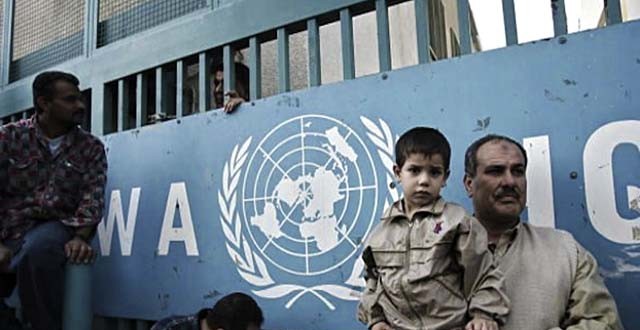Commissioner-General of the United Nations Relief and Works Agency for Palestine Refugees (UNRWA), Philippe Lazzarini, has told the Agency’s Virtual Advisory Commission that with the critical financial impasse the Agency has been facing, he was not sure whether the UNRWA will be able to maintain its operations until the end of the year.
“The funding gap in UNRWA’s Programme Budget, the backbone of the Agency, remains extremely serious and amounts to $335 million after the pledging conference. We are in the dark and I do not know if we will be able to run UNRWA operations until the end of the year,” said Lazzarini.
He continued, “Over the last 5 years – with the exception of 2018 – UNRWA’s budget has not been adequately resourced to meet the needs of the Palestine refugees. This is happening even though UNRWA has made major efforts to keep expenditure under control by introducing efficiency and, at times, austerity measures. These measures have resulted in savings amounting to half a billion dollars since 2015, an average of 100 million dollars per year.”
The UNRWA chief said however, “the Agency kept all core services running. But even savings have a cost.”
He said it was almost impossible to run an organization of the size of UNRWA, with nearly 30,000 staff, “when its cash flow is critically low starting in quarter two and the volume and timing of contributions are unclear. Year after year, month after month, UNRWA is on the edge of a financial collapse. This can simply not continue.”
“Despite the severity of the financial situation, I have chosen not to keep publicly sounding the alarm. This to avoid adding anxiety to the insecurity that refugees feel every day,” he added.
Lazzarini said the pledging conference last week was an important milestone to overcome the Agency’s funding gap, and laid the basis for increased predictability of funding through multi-year agreements.
“The level of representation and the strong statements of support at the conference reflected once more the solid support of the international community for the UNRWA mandate. However, this unwavering political support has not yet been translated into matching financial commitments,” he remarked.
“Next time you visit our operations and find yourself in a crowded classroom or one with a broken blackboard, visit a teacher support room without a photocopier, or get into an UNRWA car which is 10 years old, you can credit our savings.”
He warned, “While we remain committed to efficiency, I can assure you that there is not much left to cut without impacting deeply the scope and the quality of the services.”



